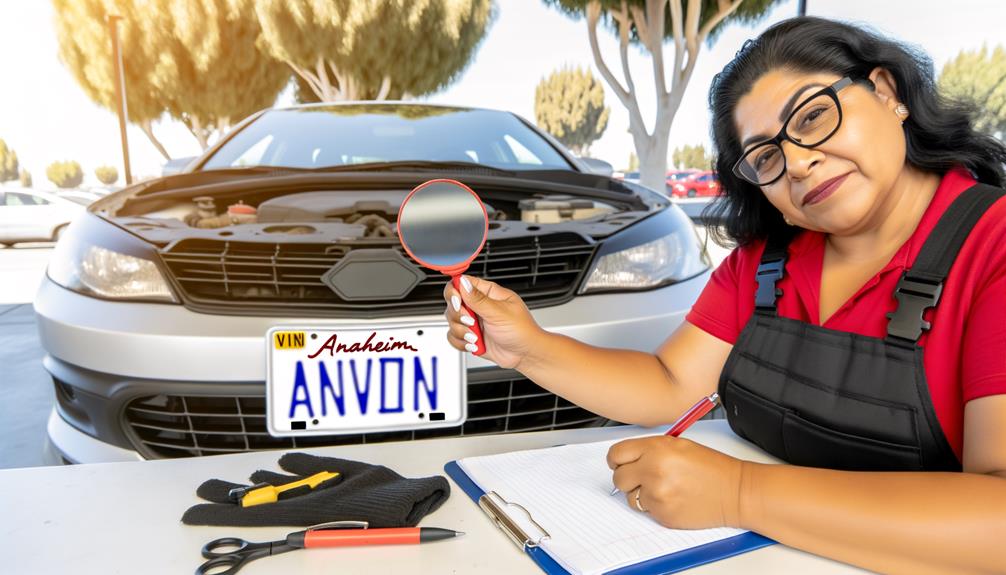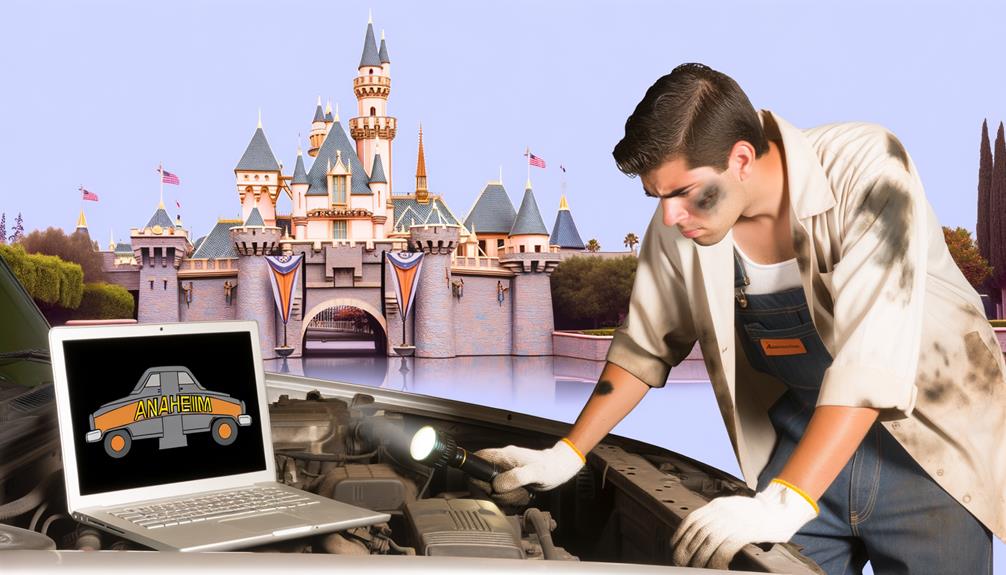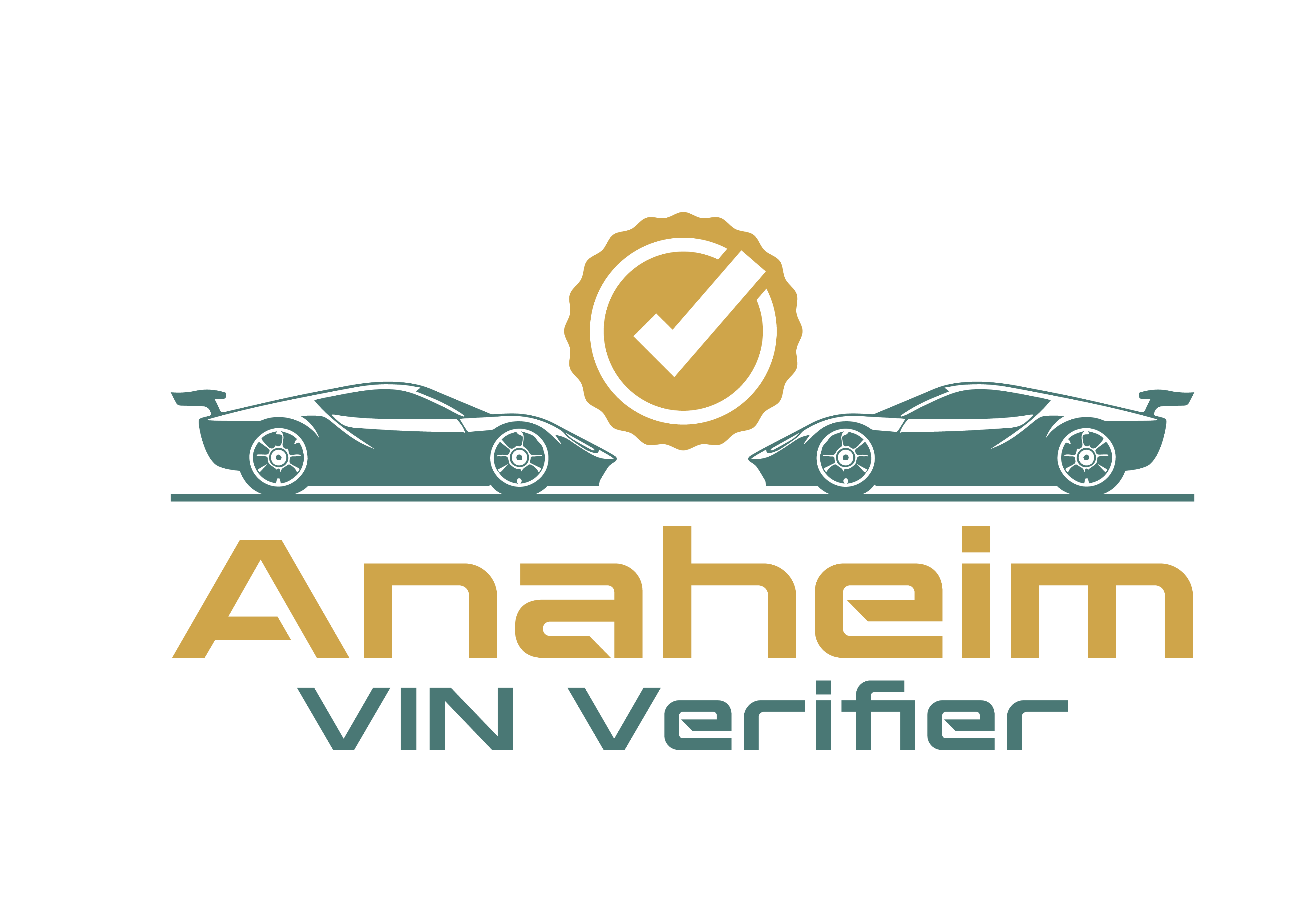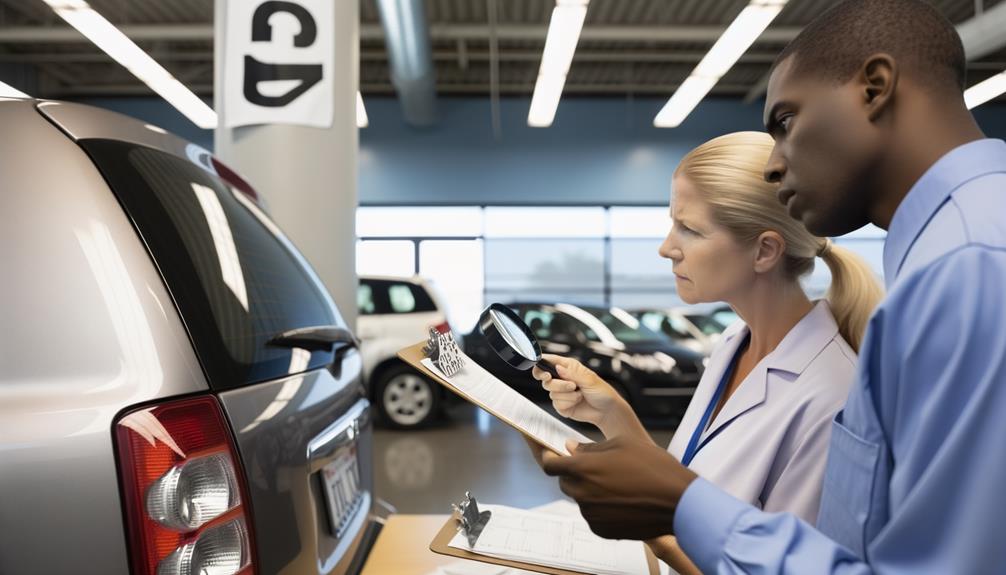When you're dealing with discrepancies in VIN verification in Anaheim, you'll want to start by ensuring you've got all your documents in order. Have you checked the VIN on different parts of your vehicle against your paperwork? It's crucial to catch any mismatches early. But what happens if, despite your best efforts, things don't add up? You might find yourself facing unexpected challenges that could stall your registration process. Consider the next steps carefully; they could be key to resolving these issues efficiently. What strategies could you employ to navigate this situation smoothly?
Understanding VIN Verification

Understanding VIN verification is crucial when registering your vehicle in California, especially if it's from out of state. You've got to ensure your vehicle's identity matches the records to steer clear of any legal snags. This process isn't just a formality; it's your ticket to hitting the road with confidence.
VIN verification involves a thorough check of your vehicle's unique 17-character code against official databases. This step is vital, as it verifies that your vehicle isn't stolen and matches the manufacturer's details. In California, you're dealing with strict regulations that help protect you from unwittingly buying or registering a compromised vehicle. You don't want to find yourself trapped in a mess of legal trouble, do you?
The process is carried out by authorized personnel only. This includes DMV employees, CHP officers, and licensed private VIN verifiers, ensuring that the inspection is both thorough and legitimate. They'll document crucial details such as the make, model, and odometer reading on the REG 31 form. It's important to note that if you're dealing with a specialty scenario like re-registering a salvage or junked vehicle, your options for verification are more limited, typically to DMV or CHP offices. Make no mistake, getting this right keeps you in the clear, maintaining your freedom to roam wherever your wheels can take you
Identifying Common Discrepancies
Several common discrepancies can complicate your VIN verification process. First, you might find mismatched VINs between your vehicle's title and the door tag. This mismatch often arises if the vehicle has been repaired using parts from other cars, or if there was an error during a previous registration process. It's crucial to ensure these numbers match to avoid issues at the DMV. Additionally, if your vehicle has undergone major modifications, like engine changes or body replacements, the integrity and authenticity of the VIN may be questioned. This can be a red flag during verification, as it may appear that the vehicle's identity has been tampered with. This concern is especially pertinent considering the VIN verification process involves confirming the vehicle identity against the title.
Another common issue is hidden VINs. These are often located in less visible parts of your vehicle and can sometimes differ from the primary VIN found on your dashboard or door tag. You'll need to check all VINs to ensure consistency. Lastly, if VIN stamps on critical components like the frame or engine block are missing or damaged, it can raise concerns about the vehicle's history and legality. Along with inconsistent documentation from previous registrations, these are key discrepancies you'll need to resolve to freely enjoy your vehicle
Preparing Necessary Documentation

Gathering the correct documents is crucial when preparing to resolve VIN discrepancies with a verifier in Anaheim. You'll want to start with your vehicle title, ensuring it includes the Vehicle Identification Number (VIN) and matches the physical identifiers on your vehicle. This document is the cornerstone of proving your ownership and the vehicle's legitimacy.
Next, compile all your registration documents. These papers, especially previous registrations, paint a comprehensive history of your vehicle. They're vital in tracing back any previous issues or discrepancies that might have led to the current situation. Don't overlook these; they're your ticket to a smoother verification process.
Also, if applicable, bring a copy of the emissions label. This isn't just a formality—it's essential for verifying your vehicle's compliance with state regulations, crucial for ensuring you're free to operate your vehicle without legal hindrances.
Lastly, gather any additional documents like receipts or bills of sale. These can be invaluable in clarifying any confusing VIN information and strengthening your case of ownership. Remember, having your vehicle accessible for VIN inspections is also key, as the verifier might need to check various hidden identifiers. Be prepared; this is your path to ensuring your vehicle freedom.
Choosing the Right Verifier
Once you've assembled all the necessary documents to address any VIN discrepancies, your next step is selecting a competent verifier in Anaheim. If you value your time and prefer flexibility, licensed private verifiers are your go-to. Unlike the DMV and CHP, these professionals offer mobile services, allowing them to come to you, which is perfect when you're juggling a busy schedule.
When choosing a verifier, it's crucial to check their credentials. Only authorized personnel can complete the REG 31 form accurately, which is a must for proper documentation. Don't just settle for anyone; make sure they're qualified.
While the DMV and CHP provide free VIN verification services, remember that these options don't include the convenience of mobile services and require you to make an appointment. This might not be ideal if you need quick service. On the other hand, private verifiers, though they charge for their services—with fees ranging between $67 and $147—offer you the freedom to schedule verifications at your convenience, directly at your location.
Addressing Verification Issues

When you encounter a VIN discrepancy during verification in Anaheim, it's crucial to act swiftly. First off, gather all your documents like the vehicle title, registration, and any prior VIN verification reports. These papers are your first line of defense, ensuring you've got the proof needed to support your claim.
Ensure the VIN is clearly visible in multiple spots on your vehicle, such as the door tag and chassis. This step isn't just about being thorough; it's about creating a bulletproof case for your car's identity. If the numbers don't match, it's your cue to contact the verifier immediately. Show them what you've found—consistency is your ally here.
Seeking Third-Party Assistance
If you're facing VIN discrepancies in Anaheim, consider seeking help from a licensed third-party verifier. These experts bring the know-how and tools directly to you, making it easier to sort out any issues without the runaround. They're savvy with California DMV regulations and can ensure your vehicle title and registration sail through without a hitch.
Using a third-party verifier means they can come to your location, fitting into your schedule and freeing you from the hassle of multiple DMV visits. They focus specifically on VIN verification and are up-to-date with the latest requirements and procedures. This tailor-made service not only saves you time but also gives you peace of mind that everything's handled correctly.
Make sure you're ready when they arrive. Gather your vehicle title, any previous registration documents, and existing VIN records. Having these at hand will streamline the process, allowing the verifier to address discrepancies efficiently. This proactive step ensures that the verification is thorough and any issues are resolved swiftly, keeping your journey to registration smooth and stress-free.
Documenting the Verification Process

After your third-party verifier has examined your vehicle, documenting the verification process accurately is your next step. It's crucial to record the vehicle's year, make, model, and the exact VIN as it appears directly on your vehicle. This meticulous attention to detail safeguards your freedom from future discrepancies.
Fill out the REG 31 form completely. This includes the verifier's details and any supporting documents. These records are essential as they provide a clear, unambiguous record of the inspection results. Make sure every piece of information reflects the true identity of your vehicle to maintain its authenticity.
Don't overlook any hidden VINs that come up during inspection. These are vital for ensuring the vehicle's identity is indisputable. Also, include clear photographs of the VIN and other distinct features of your vehicle. These images serve as irrefutable evidence of your vehicle's identity and condition at the time of verification.

